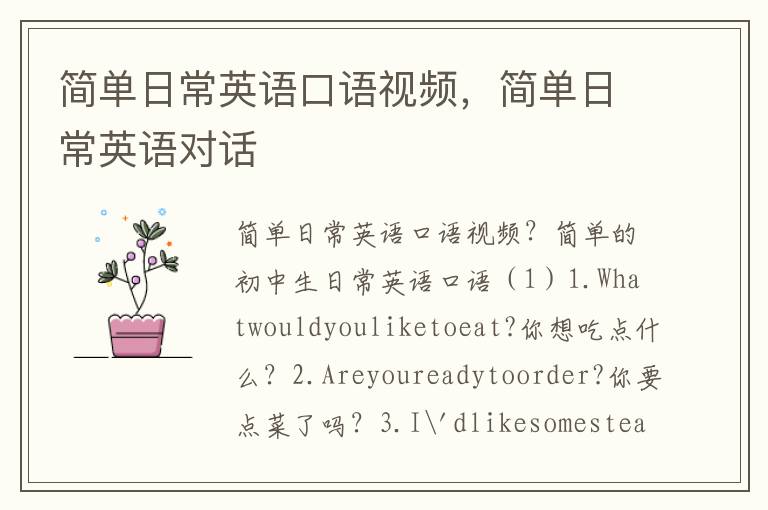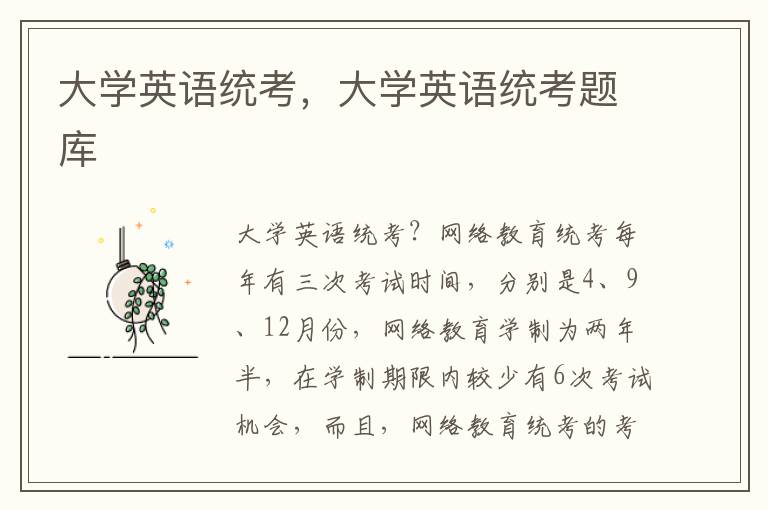【简介】感谢网友“雕龙文库”参与投稿,这里小编给大家分享一些[db:SEO标题],方便大家学习。
Regulators in Japan recently counselled regional banks that hold massive amounts of Japanese government bonds to shorten the maturity of their holdings to reduce their interest rate risk. That is an indication that in Tokyo even regulators are becoming more nervous about the health of the market.
最近,日本监管机构建议持有大量日本政府债券的本地银行缩短所持债券期限,从而降低利率风险。这表明,日本的监管机构都对市场的健康状况越来越担忧。
They are not alone. Sumitomo Mitsui Financial Group has cut the term of its holdings from more than three years to less than two years.
不仅仅是它们在担忧。三井住友金融集团(Sumitomo Mitsui Financial Group)已经将其持有的债券期限从三年以上缩短到两年以下。
A senior executive at Norinchukin Bank, one of Japan’s largest investors, says he is less worried, but that is largely because Norinchukin holds much of the government’s issuance of variable rate debt.
日本最大投资机构之一农林中央金库(Norinchukin Bank)的一位高级主管表示,他不是特别担忧,但这主要是因为农林中央金库持有的是政府发行的大量浮动利率债券。
Meanwhile, the sparring continues between Masaaki Shirakawa, governor of the Bank of Japan, and Shinzo Abe, opposition leader and the man most likely to become Japan’s prime minister after mid-December elections, over whether the BoJ has been aggressive enough in its monetary easing.
与此同时,在日本央行货币宽松政策是否足够的问题上,日本央行行长白川方名(Masaaki Shirakawa)和反对党领导人安倍晋三(Shinzo Abe)之间依然有分歧。安倍晋三很有可能在12月中旬选举之后成为首相。
“The BoJ is under siege, economists at JPMorgan in Japan noted recently. “The tension between the government and the central bank is set to escalate.
摩根大通(JPMorgan)驻日本经济学家最近表示:“日本央行面临着困境。日本政府和日本央行之间的冲突可能会升级。
Mr Abe’s preference for an explicit 2-3 per cent inflation target has helped drive the yen down to below Y82 to the dollar in the expectation of more asset purchases, possibly even of foreign currency bonds.
安倍晋三支持制定2%到3%的明确通胀目标,这使外界预期资产购买将增多,甚至外币债券的购买也可能增多,这促使日元兑美元汇率下降到82:1以下的水平。
That has also led to the expectation that the big exporters will regain their mojo, adverse trade and current account numbers will reverse and the economy will finally rebound.
这也使得人们纷纷预期,大型出口商将时来运转,不利的贸易和经常账户数字也将好转,经济终于将实现反弹。
But in some ways what may be good for the Japanese economy could prove harmful to?the market for?government?debt.
然而,在某种程度上,对日本经济有益的东西可能会对政府债券市场不利。
Given that the only real catalyst for growth in Japan has been its exports, what the macro economy requires is a weak yen. But can Japan actually engineer a weaker yen without triggering a rise in yields on its debt?
鉴于日本经济增长唯一真正的催化剂就是其出口,因此宏观经济需要的就是弱势日元。但日本能够在不提高其债券收益率的情况下让日元走弱吗?
In the worst case scenario, the slide in the yen could be the catalyst for a rise in yields on Japanese government bonds, a market that is about the same size as the US Treasury market at between $11tn and $12tn. That in turn could set off a spiral in which non-yen based investors (a mere 8 per cent of the demand today, admittedly) insist on higher yields to compensate for possible losses on the currency, while Japanese banks, whose profitability has been minimal, would be looking at losses on their government bond holdings. In most cases, those holdings are larger than the banks’ domestic corporate loan books, as deposits from risk-averse households come into their coffers.
最坏的情况下,日元下滑可能会推高日本政府债券收益率,日本国债市场规模大约为11万亿到12万亿美元之间,与美国国债市场差不多。这可能会引发一个螺旋反应:非日元投资者(不可否认,现在他们只占需求的8%)要求提高日本国债收益率,从而弥补他们在日元上可能出现的损失,而盈利一直较低的日本银行手中持有的日本国债将出现亏损。大多数情况下,这些债券的规模要大于银行持有的国内公司贷款,因为它们吸收的存款来自规避风险的家庭。
Foreigners have been sceptical about the sustainability of the Japanese government debt burden for almost two decades. They have all the charts showing debt is now 220 per cent of gross domestic product on a gross basis. Yet, shorting the yen has been the graveyard trade for many hedge funds and some analysts estimate that hedge funds have lost more money shorting Japanese government bonds than on any other trade.
二十年来,外国人对日本政府债券的可持续性一直持怀疑的态度。很多数据表明,整体上来看,日本债务现在已经达到其GDP的220%。然而,对于很多对冲基金来说,做空日元资产就是一种“死亡交易,一些分析师估计,相比其他交易,对冲基金在做空日本政府债券方面的损失最多。
Still, to many the end game feels closer as recent data on the macro side looks ever more dire.
尽管如此,由于最近宏观层面上的数据更加糟糕,对于很多人来说,这种“终结游戏的脚步越来越近。
Japan’s economy contracted at a 3.5 per cent annualised rate for the past quarter and data for October suggest the economy will shrink again this quarter, according to JPMorgan. Exports in the third quarter were down 19 per cent on an annualised basis while industrial production was down more than 24 per cent. Japan has been running a trade deficit for 19 out of the past 20 months, according to data from Chris Wood of CLSA in Hong Kong, and registered a current account deficit in September for the first time since March 1981. Household savings will evaporate as Japan’s population continues to age. But macroeconomic factors have never been the definitive key to understanding what happens in Japan. Movements in the domestic financial markets still reflect the desires of the regulators. If interest rates show signs of moving up, the amorphous “they will use every lever they can to prevent the debacle.
摩根大通指出,过去一个季度日本经济同比收缩了3.5%,10月份的数据显示,第四季度经济还将收缩。第三季度出口同比下降了19%,而工业产出降幅则超过了24%。里昂证券(CLSA)驻香港分析师克里斯·伍德(Chris Wood)表示,过去的20个月中,日本有19个月处于贸易赤字中,9月份甚至还出现了1981年3月以来的第一次经常账户赤字。随着日本老龄化的继续,家庭储蓄将蒸发。但宏观经济因素从来不是理解日本状况的关键。国内金融市场的走势依然反映了监管机构的意愿。如果利率出现上涨的迹象,即使分歧再大,“他们也将用一切手段来避免这一灾难。
For example, some perceptive analysts see the decision to postpone the privatisation of Japan Post until the autumn of 2023 as a prudential measure designed to give regulators continued access to the captive deposits of its bank arm as another way to support the Japanese government bond market.
比如说,一些敏锐的分析师认为,将日本邮政(Japan Post)私有化推迟到2023年秋的决定,就是一个谨慎的措施,旨在让监管机构能够继续利用其银行分支的储蓄资金,作为支持日本政府债券市场的另一种方式。
At best, though, regulators can only postpone, not prevent. It is a measure of just how far Japan’s fortunes have faded that the debate about the future of the government bond market, corporate Japan and the banks is more a question of survival than of profitability.
然而,即使是最好的情况,监管机构也只能推迟而不是阻止利率上升。关于日本政府债券、日本公司、日本银行未来的讨论,更多的是生存而不是盈利的问题,可见日本经济的衰退程度之深。
Time is not on the side either of Japan’s ageing population or its debt burden.
不论是日本的人口老龄化,还是沉重的债务负担,时运都不站在它们这边。
Regulators in Japan recently counselled regional banks that hold massive amounts of Japanese government bonds to shorten the maturity of their holdings to reduce their interest rate risk. That is an indication that in Tokyo even regulators are becoming more nervous about the health of the market.
最近,日本监管机构建议持有大量日本政府债券的本地银行缩短所持债券期限,从而降低利率风险。这表明,日本的监管机构都对市场的健康状况越来越担忧。
They are not alone. Sumitomo Mitsui Financial Group has cut the term of its holdings from more than three years to less than two years.
不仅仅是它们在担忧。三井住友金融集团(Sumitomo Mitsui Financial Group)已经将其持有的债券期限从三年以上缩短到两年以下。
A senior executive at Norinchukin Bank, one of Japan’s largest investors, says he is less worried, but that is largely because Norinchukin holds much of the government’s issuance of variable rate debt.
日本最大投资机构之一农林中央金库(Norinchukin Bank)的一位高级主管表示,他不是特别担忧,但这主要是因为农林中央金库持有的是政府发行的大量浮动利率债券。
Meanwhile, the sparring continues between Masaaki Shirakawa, governor of the Bank of Japan, and Shinzo Abe, opposition leader and the man most likely to become Japan’s prime minister after mid-December elections, over whether the BoJ has been aggressive enough in its monetary easing.
与此同时,在日本央行货币宽松政策是否足够的问题上,日本央行行长白川方名(Masaaki Shirakawa)和反对党领导人安倍晋三(Shinzo Abe)之间依然有分歧。安倍晋三很有可能在12月中旬选举之后成为首相。
“The BoJ is under siege, economists at JPMorgan in Japan noted recently. “The tension between the government and the central bank is set to escalate.
摩根大通(JPMorgan)驻日本经济学家最近表示:“日本央行面临着困境。日本政府和日本央行之间的冲突可能会升级。
Mr Abe’s preference for an explicit 2-3 per cent inflation target has helped drive the yen down to below Y82 to the dollar in the expectation of more asset purchases, possibly even of foreign currency bonds.
安倍晋三支持制定2%到3%的明确通胀目标,这使外界预期资产购买将增多,甚至外币债券的购买也可能增多,这促使日元兑美元汇率下降到82:1以下的水平。
That has also led to the expectation that the big exporters will regain their mojo, adverse trade and current account numbers will reverse and the economy will finally rebound.
这也使得人们纷纷预期,大型出口商将时来运转,不利的贸易和经常账户数字也将好转,经济终于将实现反弹。
But in some ways what may be good for the Japanese economy could prove harmful to?the market for?government?debt.
然而,在某种程度上,对日本经济有益的东西可能会对政府债券市场不利。
Given that the only real catalyst for growth in Japan has been its exports, what the macro economy requires is a weak yen. But can Japan actually engineer a weaker yen without triggering a rise in yields on its debt?
鉴于日本经济增长唯一真正的催化剂就是其出口,因此宏观经济需要的就是弱势日元。但日本能够在不提高其债券收益率的情况下让日元走弱吗?
In the worst case scenario, the slide in the yen could be the catalyst for a rise in yields on Japanese government bonds, a market that is about the same size as the US Treasury market at between $11tn and $12tn. That in turn could set off a spiral in which non-yen based investors (a mere 8 per cent of the demand today, admittedly) insist on higher yields to compensate for possible losses on the currency, while Japanese banks, whose profitability has been minimal, would be looking at losses on their government bond holdings. In most cases, those holdings are larger than the banks’ domestic corporate loan books, as deposits from risk-averse households come into their coffers.
最坏的情况下,日元下滑可能会推高日本政府债券收益率,日本国债市场规模大约为11万亿到12万亿美元之间,与美国国债市场差不多。这可能会引发一个螺旋反应:非日元投资者(不可否认,现在他们只占需求的8%)要求提高日本国债收益率,从而弥补他们在日元上可能出现的损失,而盈利一直较低的日本银行手中持有的日本国债将出现亏损。大多数情况下,这些债券的规模要大于银行持有的国内公司贷款,因为它们吸收的存款来自规避风险的家庭。
Foreigners have been sceptical about the sustainability of the Japanese government debt burden for almost two decades. They have all the charts showing debt is now 220 per cent of gross domestic product on a gross basis. Yet, shorting the yen has been the graveyard trade for many hedge funds and some analysts estimate that hedge funds have lost more money shorting Japanese government bonds than on any other trade.
二十年来,外国人对日本政府债券的可持续性一直持怀疑的态度。很多数据表明,整体上来看,日本债务现在已经达到其GDP的220%。然而,对于很多对冲基金来说,做空日元资产就是一种“死亡交易,一些分析师估计,相比其他交易,对冲基金在做空日本政府债券方面的损失最多。
Still, to many the end game feels closer as recent data on the macro side looks ever more dire.
尽管如此,由于最近宏观层面上的数据更加糟糕,对于很多人来说,这种“终结游戏的脚步越来越近。
Japan’s economy contracted at a 3.5 per cent annualised rate for the past quarter and data for October suggest the economy will shrink again this quarter, according to JPMorgan. Exports in the third quarter were down 19 per cent on an annualised basis while industrial production was down more than 24 per cent. Japan has been running a trade deficit for 19 out of the past 20 months, according to data from Chris Wood of CLSA in Hong Kong, and registered a current account deficit in September for the first time since March 1981. Household savings will evaporate as Japan’s population continues to age. But macroeconomic factors have never been the definitive key to understanding what happens in Japan. Movements in the domestic financial markets still reflect the desires of the regulators. If interest rates show signs of moving up, the amorphous “they will use every lever they can to prevent the debacle.
摩根大通指出,过去一个季度日本经济同比收缩了3.5%,10月份的数据显示,第四季度经济还将收缩。第三季度出口同比下降了19%,而工业产出降幅则超过了24%。里昂证券(CLSA)驻香港分析师克里斯·伍德(Chris Wood)表示,过去的20个月中,日本有19个月处于贸易赤字中,9月份甚至还出现了1981年3月以来的第一次经常账户赤字。随着日本老龄化的继续,家庭储蓄将蒸发。但宏观经济因素从来不是理解日本状况的关键。国内金融市场的走势依然反映了监管机构的意愿。如果利率出现上涨的迹象,即使分歧再大,“他们也将用一切手段来避免这一灾难。
For example, some perceptive analysts see the decision to postpone the privatisation of Japan Post until the autumn of 2023 as a prudential measure designed to give regulators continued access to the captive deposits of its bank arm as another way to support the Japanese government bond market.
比如说,一些敏锐的分析师认为,将日本邮政(Japan Post)私有化推迟到2023年秋的决定,就是一个谨慎的措施,旨在让监管机构能够继续利用其银行分支的储蓄资金,作为支持日本政府债券市场的另一种方式。
At best, though, regulators can only postpone, not prevent. It is a measure of just how far Japan’s fortunes have faded that the debate about the future of the government bond market, corporate Japan and the banks is more a question of survival than of profitability.
然而,即使是最好的情况,监管机构也只能推迟而不是阻止利率上升。关于日本政府债券、日本公司、日本银行未来的讨论,更多的是生存而不是盈利的问题,可见日本经济的衰退程度之深。
Time is not on the side either of Japan’s ageing population or its debt burden.
不论是日本的人口老龄化,还是沉重的债务负担,时运都不站在它们这边。











